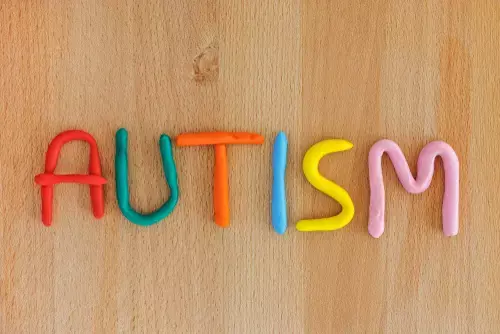- Home
- Medical news & Guidelines
- Anesthesiology
- Cardiology and CTVS
- Critical Care
- Dentistry
- Dermatology
- Diabetes and Endocrinology
- ENT
- Gastroenterology
- Medicine
- Nephrology
- Neurology
- Obstretics-Gynaecology
- Oncology
- Ophthalmology
- Orthopaedics
- Pediatrics-Neonatology
- Psychiatry
- Pulmonology
- Radiology
- Surgery
- Urology
- Laboratory Medicine
- Diet
- Nursing
- Paramedical
- Physiotherapy
- Health news
- Fact Check
- Bone Health Fact Check
- Brain Health Fact Check
- Cancer Related Fact Check
- Child Care Fact Check
- Dental and oral health fact check
- Diabetes and metabolic health fact check
- Diet and Nutrition Fact Check
- Eye and ENT Care Fact Check
- Fitness fact check
- Gut health fact check
- Heart health fact check
- Kidney health fact check
- Medical education fact check
- Men's health fact check
- Respiratory fact check
- Skin and hair care fact check
- Vaccine and Immunization fact check
- Women's health fact check
- AYUSH
- State News
- Andaman and Nicobar Islands
- Andhra Pradesh
- Arunachal Pradesh
- Assam
- Bihar
- Chandigarh
- Chattisgarh
- Dadra and Nagar Haveli
- Daman and Diu
- Delhi
- Goa
- Gujarat
- Haryana
- Himachal Pradesh
- Jammu & Kashmir
- Jharkhand
- Karnataka
- Kerala
- Ladakh
- Lakshadweep
- Madhya Pradesh
- Maharashtra
- Manipur
- Meghalaya
- Mizoram
- Nagaland
- Odisha
- Puducherry
- Punjab
- Rajasthan
- Sikkim
- Tamil Nadu
- Telangana
- Tripura
- Uttar Pradesh
- Uttrakhand
- West Bengal
- Medical Education
- Industry
Balovaptan ineffective in improving socialization and communication in autistic children: JAMA

USA: In a new study conducted by Eric Hollander and the team, it was observed that Balovaptan did not show effectiveness in improving sociability and communication in the pediatric autism spectrum disorder (ASD) population. Balovaptan, however, was well tolerated in children 5 years or older. The findings of this study were published in the Journal of American Medical Association - Psychiatry.
There are no FDA-approved drugs to treat the fundamental symptoms of ASD, which include socializing and communication impairments. As a result, the purpose of this research was to compare the effectiveness and safety of balovaptan, an oral selective vasopressin 1a receptor antagonist, to a placebo in children and adolescents with ASD.
The aV1ation experiment was a 24-week, placebo-controlled, parallel-group, randomized, double-blind investigation. Individuals were screened and randomly allocated to treatment groups between November 22, 2016, and September 3, 2019. Individuals in the primary efficacy analysis were taking age-adjusted balovaptan corresponding to a 10-mg adult dosage, as well as participants in the simultaneously randomized placebo group. This multicenter experiment was conducted in 41 different locations across the United States.
Participants ranged in age from 5 to 17 years old, had ASD, and had an IQ of 70 or above. Data was evaluated between April 8 and November 16, 2020. Participants were randomly allocated to either 4-mg or 10-mg adult-equivalent balovaptan or placebo on a daily basis until the 4-mg group was dropped. At week 24, the major endpoint was the change from baseline in the Vineland-II two-domain composite score.
The key findings of this study were as follows:
1. Between November 2016 and September 2019, 599 people were examined, and 339 were randomly allocated to either a 4-mg balovaptan adult-equivalent dosage, or a 10-mg balovaptan adult-equivalent dose, or a placebo.
2. The primary analysis comprised 86 people who were given a 10-mg balovaptan adult-equivalent dosage and 81 who were given a placebo.
3. At week 24, no statistically significant differences in change from baseline on the Vineland-II 2DC score were seen between the balovaptan and placebo groups.
4. At week 24, there were no differences in any secondary end goals between balovaptan and placebo.
5. Balovaptan was well accepted, and no new safety concerns arose. Participants reported similar proportions of adverse events and severe adverse events.
In conclusion, Balovaptan was well tolerated in youngsters aged 5 and above. Further development of rigorous, sensitive, and objective outcome measures may aid in the evaluation of interventions aimed at communication and socialization in pediatric ASD.
Reference:
Hollander, E., Jacob, S., Jou, R., McNamara, N., Sikich, L., Tobe, R., Smith, J., Sanders, K., Squassante, L., Murtagh, L., Gleissl, T., Wandel, C., & Veenstra-VanderWeele, J. (2022). Balovaptan vs Placebo for Social Communication in Childhood Autism Spectrum Disorder. In JAMA Psychiatry. American Medical Association (AMA). https://doi.org/10.1001/jamapsychiatry.2022.1717
Neuroscience Masters graduate
Jacinthlyn Sylvia, a Neuroscience Master's graduate from Chennai has worked extensively in deciphering the neurobiology of cognition and motor control in aging. She also has spread-out exposure to Neurosurgery from her Bachelor’s. She is currently involved in active Neuro-Oncology research. She is an upcoming neuroscientist with a fiery passion for writing. Her news cover at Medical Dialogues feature recent discoveries and updates from the healthcare and biomedical research fields. She can be reached at editorial@medicaldialogues.in
Dr Kamal Kant Kohli-MBBS, DTCD- a chest specialist with more than 30 years of practice and a flair for writing clinical articles, Dr Kamal Kant Kohli joined Medical Dialogues as a Chief Editor of Medical News. Besides writing articles, as an editor, he proofreads and verifies all the medical content published on Medical Dialogues including those coming from journals, studies,medical conferences,guidelines etc. Email: drkohli@medicaldialogues.in. Contact no. 011-43720751


